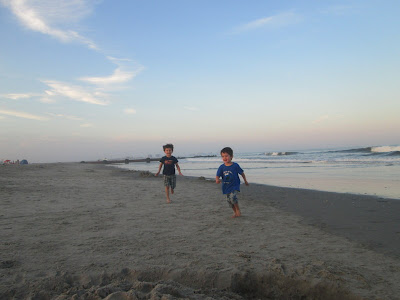1. What if the baby you get is really messed up?
2. What if the baby doesn't have problems, but it turns out they were exposed to something in utero that gives them problems that manifest later?
3. What if you get a girl and someday she and one of your sons decide to have sex because they're not actually biologically related?
4. What if your baby has the obesity gene?
This is a small example of the questions I have gotten recently, and yes, those are all questions I have actually gotten.
Here is how I have tried to respond:
1. Adopted children are no more likely to have problems than children who are not adopted.
2. We will do our best to handle any challenges any of our children have.
3. This question actually made me go do a bit of research because it's incredibly disturbing and it got stuck in my mind. And as hard as I tried, I couldn't find any documented cases of adopted siblings having sexual relations. This definitely doesn't mean it hasn't happened, and I think pretty much anything we can think of has happened at some point over the history of time. And hell, look at what Woody Allen did. Crazy things do happen. But I believe that if two children grow up together and have the same parents, they are siblings and they view each other as siblings, whether they are biologically related or not. And in general, siblings are not attracted to each other. This is very low on my list of concerns. So low, in fact, that it's not even on the list.
4. This one is also low on the list of concerns. My response was simply that there are worse things and I want all of my children to be healthy and to feel confident.
So while at first I was sort of surprised to have people voice their negative stereotypes about adopted children in the form of questions, I also remembered the seemingly insensitive comments I got when I was pregnant. Comments such as:
1. Have you and Nghia decided what you would do if there's something wrong with the baby?
2. I knew someone who was sick for all 9 months. (I received this comment when I was in the midst of horrific morning sickness and the only thing that was keeping me sane was knowing it would end when I hit 12 weeks.)
3. Do you worry about having a miscarriage?
4. Wow, you're huge!!
So, I guess the take-away from all this is that people say insensitive, unthinking things all the time! And honestly, they usually mean well. I tend to believe that people are generally kind and when they ask questions or make comments that sound uninformed or insensitive, it's not because they're trying to be provocative or offensive. They're just trying to understand, especially in the case of adoption. And when it comes to adoption, there are so many stereotypes out there that are constantly being reinforced by pop-culture and the media. Especially the idea that children who are adopted come with a set of problems. This is absolutely untrue, according to all of the longitudinal studies that have been done.
Children who are adopted at birth, like our child will be, face the same challenges that any other child faces, adopted or not. Now, that's not to say that when they're teenagers they won't have issues with identity. They probably will, according to the research out there. And it makes sense that during that fragile developmental period, children who are adopted will think about where they come from in a way that non-adopted teens won't. This is one of the reasons we are doing an open adoption, so our child will always be able to have his or her questions answered. I do expect this issue to come up and to be something Nghia and I will need to handle very thoughtfully and with a great deal of sensitivity. And that's okay. All of our children are going to face challenges and one of the most difficult and important parts of parenting is figuring out how to be there for your kid in the way that they need when they are going through a tough time. Growing up is hard for everyone. My teenage years certainly weren't without angst and drama. In fact, they mostly sucked. So will our adopted child face challenges as he or she grows up? The answer, of course, is yes. And will Khai and Avi face challenges as they grow up? Of course they will. Because growing up is hard. For everyone.
Knowing they will face challenges doesn't stop people from having biological children. Why should it stop us from adopting?
 |
| Nghia reading a book to my sister's kids. This is about a month before Khai was born. |



